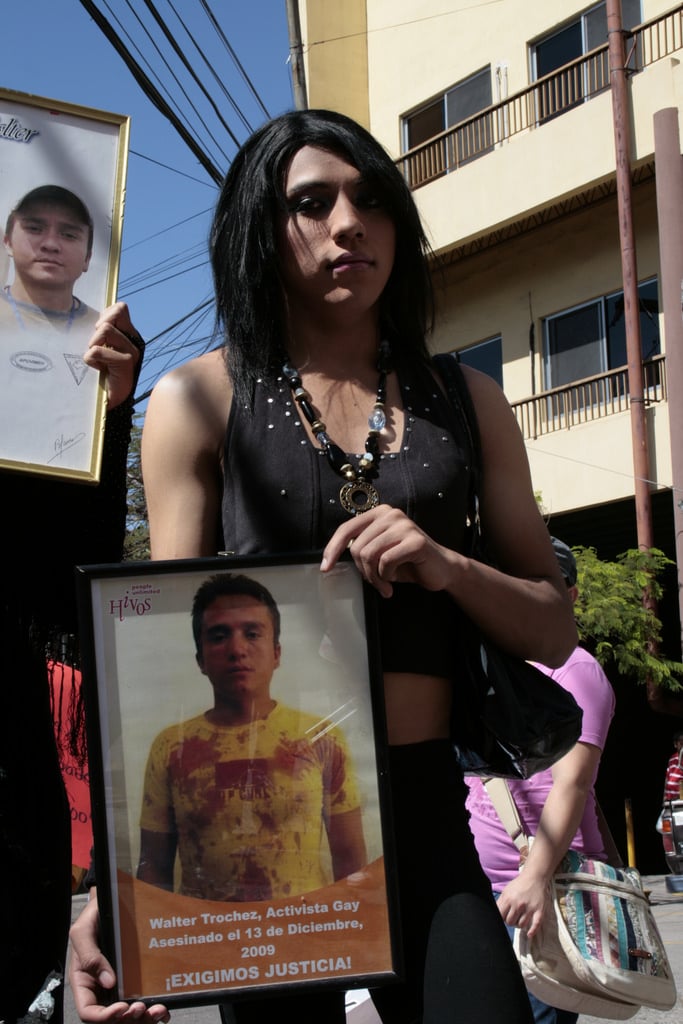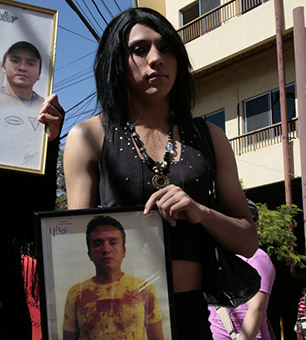
Amid an alarming increase in hostility and violence toward LGBTI people in Russia, the Duma unanimously passed a regressive anti-gay law prohibiting “propaganda on nontraditional sexual relationships” on June 11, and President Vladimir Putin signed the legislation a few weeks later. The initial US response and related media coverage, although disapproving, was somewhat muted. Official US and media outrage, however, seemed to take on a new urgency after Putin thumbed his nose at escalating rhetoric from the US about Edward Snowden, who is being characterized as a whistleblower by some and a traitor by others, by granting him temporary asylum.
The US is rightfully disturbed by deteriorating conditions for LGBTI people in Russia. In addition to legally sanctioned homophobia, widespread LGBTI hate crimes include harassment, torture and murder – and entrenched attitudes are responsible for a lamentable increase in suicides. Yet very few people have heard about the ubiquitous violence against LGBTI people in Honduras since the 2009 coup, despite a per capita LGBTI homicide rate that vastly outpaces Russia’s. In the four years since democratically elected president Mel Zelaya was ousted, the number of murdered LGBTI people (90) is more than four times the number in the prior decade (20).
The media has provided some coverage of the endemic violence afflicting Honduras, citing the oft-repeated statistic that Honduras is now the murder capital of the world. But the conversation is often marked by a flawed analysis of the causes, often suggesting that the majority of violence is attributable to narco-trafficking and gangs. Yet as critics point out, that connection is overstated, and possibly even manipulated to blunt a clear, comprehensive and nuanced understanding of the violence plaguing the country.
Even as the death toll of Honduran civilians mounts, the US continues to provide political approbation, and police and military funding and support, despite the well-documented connection between state security forces and rampant human rights abuses. Paramilitary and private security forces guarding the interests of the business elite also operate with almost complete impunity. Much of the violence is aimed at suppressing the dissent of a broad-based popular movement, a climate likely to worsen as the November election draws closer. In addition to LGBTI people, labor leaders, land rights activists, human rights defenders, indigenous leaders, journalists, lawyers and judges have been targeted. By ignoring the broader context in which LGBTI violence is taking place, the US has been accused of”pinkwashing”- selectively highlighting politically palatable LGBTI issues to obscure willful inattention to other human rights abuses.
The US is making laudable progress in its own attitudes toward LGBTI rights, with the recent Supreme Court decisions in the “Defense of Marriage Act” and California’s Proposition 8 cases, and a federal court’s recent validation of the international and universal nature of LGBTI rights in the case against evangelical minister and anti-gay crusader Scott Lively, who stands accused of fomenting anti-gay violence in Uganda.
These developments follow admirable initiatives aimed at fostering LGBTI rights abroad. In December 2011, President Barack Obama directed US government agencies with operations overseas to “respond swiftly to abuses against LGBT persons.” Six months later however, a June 2012 letter from 83 members of the House of Representatives to then-Secretary of State Hillary Clinton reminded her of her prior declaration that violence against LGBTI individuals “is one of the most urgent and important human rights struggles of all times” and asked for prompt attention to the grave situation in Honduras. Some have credited the legislators’ request, coupled with US assistance, to the Public Ministry’s Special Victim’s Unit (SVU) spotlight on LGBTI cases. Rather than enjoy this special attention, however, some LGBTI activists have asked the SVU to target repression against all social movement actors, believing they share interwoven goals and a common fate.
Porfirio “Pepe” Lobo is a staunch US ally, and his administration has shepherded numerous laws through the legislature that are favorable to US business and foreign policy interests. In contrast, relations with Russia have been increasingly chilly, reaching a nadir when Putin gave the US the proverbial middle finger by granting Snowden status as a legitimate asylum seeker, deserving protection, albeit temporary, from US persecution.
As the US sets out to provide leadership in promoting LGBTI rights across the globe, consistent treatment would advance its moral authority. This could be achieved by directing sustained attention to protecting LGBTI rights not only in those countries where such posturing plays out against policy antagonisms, but also in those countries the US considers to be economic and political allies. In this instance, the US appears to be less concerned with the rights of LGBTI Hondurans fighting repression and engaging in peaceful and democratic resistance than in advancing US foreign policy. As long as the US supports the repressive Honduran regime, LGBTI people and their allies in the popular movement will continue to be the unfortunate targets of threats and intimidation and the victims of brutal violence.
Join us in defending the truth before it’s too late
The future of independent journalism is uncertain, and the consequences of losing it are too grave to ignore. To ensure Truthout remains safe, strong, and free, we need to raise $44,000 in the next 6 days. Every dollar raised goes directly toward the costs of producing news you can trust.
Please give what you can — because by supporting us with a tax-deductible donation, you’re not just preserving a source of news, you’re helping to safeguard what’s left of our democracy.
